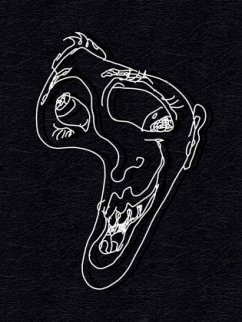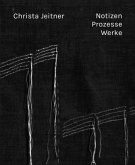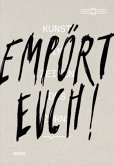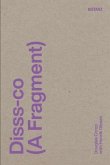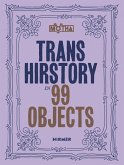Monumentale Skulpturen und Bildzitate
Die Skulpturen von Zuzanna Czebatul (geb. 1986 in Miedzyrzecz, Polen; lebt und arbeitet in Berlin) demontieren ideologische Erzählungen von Triumph und Heldentum. In ihren großformatigen Büsten, Bodenarbeiten und raumgreifenden Installationen collagiert und zerlegt die Bildhauerin Symbole der Macht und trifft mit ihren Arbeiten den Nerv einer Zeit, in der Denkmäler kolonialer Gewalt öffentlich infrage gestellt und abgerissen werden. Auch engagiert Czebatul sich in aktuellen transnationalen Solidaritätsbewegungen, etwa gegen die jüngste AntiLGBT+Politik in Polen, und schafft Arbeiten, die diese tiefen demokratischen Krisen kommentieren. Lust und Sexualität als Akt des Wiederstandes, die Möglichkeiten postmoderner Räume sowie das subversive Potential der RaveKultur beeinflussen dabei das facettenreiche Werk der Künstlerin, in dem Textilien, Plüsch und Vlies, aber auch Kunstharz, Glas oder Beton oftmals zum Einsatz kommen.
Im Rahmen von Czebatuls Einzelausstellung im Kunstpalais Erlangen erscheint ihre erste Monografie. The Happy Deppy Ecstasy Archive zeigt einen umfassenden Einblick in die Praxis der Künstlerin anhand von Arbeiten der letzten fünf Jahre. Die Texte schrieben Kate Brown, Tom Engels, Malte LinKröger, Amely Deiss, Marie Madec und Benoît Lamy de La Chapelle.
Monumental Sculptures and Visual Quotations
Zuzanna Czebatul's sculptures deconstruct ideological narratives of triumph and heroism. In large-format busts, floor pieces, and sprawling installations, the sculptor collages and dismantles symbols of power; her work touches a raw nerve at a time when monuments of colonial violence are publicly challenged and taken down. Actively involved in today's transnational solidarity movements, as against the recent anti-LGBT+ policies in Poland, Czebatul makes art that reflects on these profound crises of democratic governance. Sensual pleasure and sexuality as acts of resistance, the possibilities of postmodern spaces, and the subversive potentials of rave culture are other influences in the artist's multifaceted works, which often feature textiles, plush, and fleece, but also synthetic resin, glass, or concrete.
Czebatul's first monograph is published on occasion of her solo exhibition at Kunstpalais Erlangen. The Happy Deppy Ecstasy Archive offers extensive insight into the artist's practice, surveying her output of the past five years. With essays by Kate Brown, Tom Engels, Malte Lin-Kröger, Amely Deiss, Marie Madec, and Benoît Lamy de La Chapelle.
Die Skulpturen von Zuzanna Czebatul (geb. 1986 in Miedzyrzecz, Polen; lebt und arbeitet in Berlin) demontieren ideologische Erzählungen von Triumph und Heldentum. In ihren großformatigen Büsten, Bodenarbeiten und raumgreifenden Installationen collagiert und zerlegt die Bildhauerin Symbole der Macht und trifft mit ihren Arbeiten den Nerv einer Zeit, in der Denkmäler kolonialer Gewalt öffentlich infrage gestellt und abgerissen werden. Auch engagiert Czebatul sich in aktuellen transnationalen Solidaritätsbewegungen, etwa gegen die jüngste AntiLGBT+Politik in Polen, und schafft Arbeiten, die diese tiefen demokratischen Krisen kommentieren. Lust und Sexualität als Akt des Wiederstandes, die Möglichkeiten postmoderner Räume sowie das subversive Potential der RaveKultur beeinflussen dabei das facettenreiche Werk der Künstlerin, in dem Textilien, Plüsch und Vlies, aber auch Kunstharz, Glas oder Beton oftmals zum Einsatz kommen.
Im Rahmen von Czebatuls Einzelausstellung im Kunstpalais Erlangen erscheint ihre erste Monografie. The Happy Deppy Ecstasy Archive zeigt einen umfassenden Einblick in die Praxis der Künstlerin anhand von Arbeiten der letzten fünf Jahre. Die Texte schrieben Kate Brown, Tom Engels, Malte LinKröger, Amely Deiss, Marie Madec und Benoît Lamy de La Chapelle.
Monumental Sculptures and Visual Quotations
Zuzanna Czebatul's sculptures deconstruct ideological narratives of triumph and heroism. In large-format busts, floor pieces, and sprawling installations, the sculptor collages and dismantles symbols of power; her work touches a raw nerve at a time when monuments of colonial violence are publicly challenged and taken down. Actively involved in today's transnational solidarity movements, as against the recent anti-LGBT+ policies in Poland, Czebatul makes art that reflects on these profound crises of democratic governance. Sensual pleasure and sexuality as acts of resistance, the possibilities of postmodern spaces, and the subversive potentials of rave culture are other influences in the artist's multifaceted works, which often feature textiles, plush, and fleece, but also synthetic resin, glass, or concrete.
Czebatul's first monograph is published on occasion of her solo exhibition at Kunstpalais Erlangen. The Happy Deppy Ecstasy Archive offers extensive insight into the artist's practice, surveying her output of the past five years. With essays by Kate Brown, Tom Engels, Malte Lin-Kröger, Amely Deiss, Marie Madec, and Benoît Lamy de La Chapelle.

